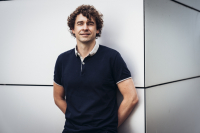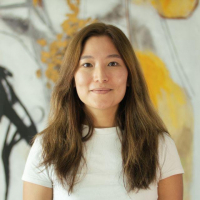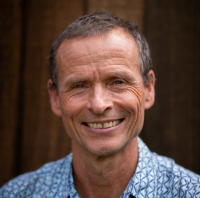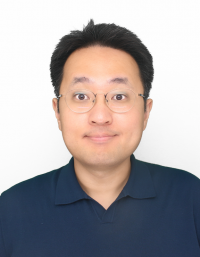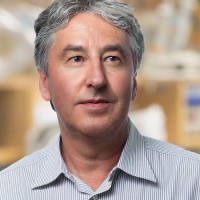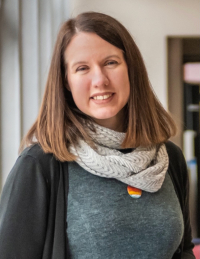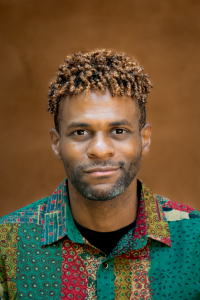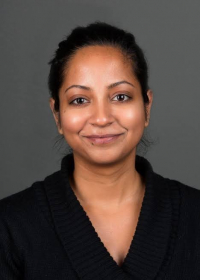Ancient DNA: New Revelations
Biographical Sketches: Co-Chairs
Harvard University
Christina Warinner is Professor of Anthropology and Human Evolutionary Biology at Harvard University, and she leads international research groups at the Max Planck Institute for Evolutionary Anthropology in Leipzig, Germany and the Leibniz Institute for Natural Products Research and Infection Biology in Jena, Germany. She is the President of the International Society for Biomolecular Archaeology (ISBA), and the recipient of the American Association for the Advancement of Science's Sussman Award for Scientific Contributions to Anthropology and the American Anthropological Association’s Exemplary Cross-Fields Award. Warinner specializes in the analysis of ancient DNA and proteins, and her research focuses on the study of ancient biomolecules to better understand past human diet, health, and the evolution of the human microbiome. She has conducted groundbreaking studies on the evolution and changing ecology of the human oral microbiome, including reconstructing the oldest microbiome to date from a 100,000-year-old Neanderthal, and she has published extensively on prehistoric migrations, the origins and spread of dairy pastoralism, and the biodiversity of the human gut microbiome. She has published two books and more than 70 peer-reviewed articles in journals, and her research has been featured in more than a hundred news articles and programs. Warinner is passionate about public education and outreach, and she co-created the Introduction to Ancient Metagenomics Summer School, which has educated more than 100 aspiring early career scientists from 18 countries. Her TED Talks have been viewed more than 2 million times, and she has been featured in documentaries produced by PBS NOVA, Netflix, and the genome sequencing company Illumina. She created the Adventures in Archaeological Science coloring book, now available in more than sixty languages, including many indigenous and underrepresented languages. She is engaged in the open science movement, and her research group has been actively involved in improving scholarly communication, data sharing, and research transparency.
Max Planck Institute for Evolutionary Anthropology
Johannes Krause earned his Ph.D. in Genetics at Leipzig University in the lab of Nobel laurate Svante Pääbo. He was appointed junior professor at the University of Tübingen in 2010, and subsequently full professor for Archaeo- and Paleogenetics in 2013. In 2014, he became founding director of the Max Planck Institute for the Science of Human History in Jena, heading the Department of Archaeogenetics. He is one of the founding directors of the Max Planck-Harvard Research Center for the Archaeoscience of the Ancient Mediterranean (MHAAM), established in 2016. In 2020 he was reappointed to the Max Planck Institute for Evolutionary Anthropology. He focuses on the analysis of ancient DNA to investigate such topics as pathogens from historic and prehistoric epidemics, human genetic history and human evolution. He contributed substantially to deciphering the Neanderthal genome and the shared genetic heritage of Neanderthals and modern humans. In 2010, he discovered the first genetic evidence of the Denisovans, an extinct hominin discovered in Siberia. His recent work includes revealing the genetic heritage of ancient Egyptians, reconstructing the first Pleistocene African genomes, uncovering the source of the epidemic plague bacteria that periodically caused historic and prehistoric epidemics in Europe, or clarifying the complex history of Europe’s prehistoric mass migrations. Prof. Dr. Krause has more than 250 publications in peer-reviewed journals, including Nature, Science, Cell, Nature Reviews Genetics, PNAS, Nature Genetics, etc. He also authored two international bestsellers translated in more than 25 languages.
Biographical Sketches: Speakers
The University of Texas at Austin
Dr. Ainash Childebayeva is a biological anthropologist specializing in ancient and modern population genetics, natural selection and epigenetics. During her PhD at the University of Michigan, Ann Arbor, she worked on high-altitude adaptation in modern Andean populations (Quechua) using a combination of genetics, epigenetics, and ancient DNA. As a post-doctoral researcher at the Max Planck Institutes for Science of Human History and Evolutionary Anthropology, she worked on the ancient genomics of European and northern Eurasian populations from the Neolithic to the Bronze Age. Dr. Childebayeva is an Assistant Professor of Anthropology at the University of Texas at Austin. Her laboratory employs interdisciplinary methods to study ancient and modern human genetic variation and natural selection in Central Eurasia, integrating genomic, archaeological, and anthropological data to elucidate patterns of migration, admixture, and adaptation. Her group also investigates high-altitude adaptation in contemporary populations and the epigenetics of stress exposure. In addition to her role at UT Austin, Dr. Childebayeva holds a research position at the Max Planck Institute for Evolutionary Anthropology in Leipzig, Germany.
UC San Diego
Pascal Gagneux is CARTA's Executive Co-Director, a Professor of Pathology and Anthropology, and the Department Chair of Anthropology at UC San Diego. He is interested in the evolutionary mechanisms responsible for generating and maintaining primate molecular diversity. The Gagneux laboratory studies cell-surface molecules in closely related primates species. His focus is on glycans, the oligosaccharides attached to glycolipids and glycoproteins of the surfaces of every cell and also secreted into the extra-cellular matrix. Gagneux's laboratory is exploring the roles of molecular diversity in protecting populations from pathogens as well as potential consequences for reproductive compatibility. Dr. Gagneux’s interest is in how glycan evolution is shaped by constraints from endogenous biochemistry and exogenous, pathogen-mediated natural selection, but could also have consequences for sexual selection. Dr. Gagneux has studied the behavioral ecology of wild chimpanzees in the Taï Forest, Ivory Coast, population genetics of West African chimpanzees, and differences in sialic acid biology between humans and great apes with special consideration of their differing pathogen regimes. In 2011, while Associate Director of CARTA, Dr. Gagneux helped to establish a graduate specialization in Anthropogeny at UC San Diego. This wholly unique graduate specialization is offered through eight participating graduate programs in the social and natural sciences at UC San Diego.
Weizmann Institute of Science
Dr. David Gokhman investigates the genetic changes that made us human. His research centers on gene regulatory differences that set us apart from our closest extinct and extant relatives - Neanderthals, Denisovans, and great apes. His work provided the first DNA methylation maps of extinct species, offering rare insights into the morphology of the elusive Denisovan. These discoveries were recognized as Science Magazine’s “Breakthrough of the Year”. Dr. Gokhman’s lab combines computational and experimental tools to explore how changes in gene expression have shaped human anatomy, physiology, and health. Pushing the boundaries of comparative evolution, his team has developed human-chimpanzee hybrid cells, an innovative system for studying gene regulation across species. The lab is also developing methods to map the biological effects of every genetic difference that distinguishes modern humans from archaic humans and great apes. For his research, Dr. Gokhman received the Dan David Young Researcher Award, the Hans Wiener Prize for Best Doctoral Thesis, and was selected to The Marker magazine’s 40 Under 40. Dr. Gokhman earned his degrees from the Hebrew University of Jerusalem and completed his postdoctoral research at Stanford University in the labs of Prof. Hunter Fraser and Prof. Dmitri Petrov. He is currently an Assistant Professor at the Weizmann Institute of Science in Israel.
Seoul National University
Choongwon Jeong is a population geneticist whose primary focus is to unravel the genetic history and local adaptations in East, Central, and North Asian human populations as well as their ungulate domesticates. During his PhD at the University of Chicago, he studied the genetic history of high-altitude East Asian populations (Tibetans and Sherpas) and their altitude adaptations using both present-day and ancient genomes. As a post-doctoral researcher and research group leader at the Max Planck Institute for the Science of Human History, he explored ancient genomes and their history from the Mediterranean to the Far East, in particular in and around Mongolia. His group at Seoul National University has been continuing the ancient genome-based reconstruction of human population history and comparing the human history with that of their companions in the Eurasian steppe: cattle, sheep, and goats. He is a tenure-track associate professor in Biological Sciences at Seoul National University.
Salk Institute for Biological Studies
Gerald F. Joyce is President and Professor at the Salk Institute for Biological Studies in La Jolla, California, and a Co-director of CARTA. Dr. Joyce received his BA from the University of Chicago in 1978 and both an MD and PhD from the University of California, San Diego in 1984. He carried out postgraduate medical training at Scripps Mercy Hospital in San Diego and postdoctoral research training at the Salk Institute before joining the faculty of The Scripps Research Institute in 1989. In 2017 Dr. Joyce moved his laboratory to the Salk Institute, where it is part of the Jack H. Skirball Center for Chemical Biology and Proteomics. While continuing his academic faculty appointment, he served as the Institute Director of the Genomics Institute of the Novartis Research Foundation (GNF) from 2014 until 2021. Dr. Joyce’s research involves the test-tube evolution of functional RNA and DNA molecules and their potential application in clinical diagnostics and therapeutics. He has a longstanding interest in the origins of life and the role of RNA in the early history of life on Earth. His research has led to the development of the first self-replicating RNA enzyme, which is capable of exponential growth and evolution. It also has led to the development of an RNA enzyme that catalyzes the polymerization and exponential amplification of other RNA molecules.
Max Planck Institute for Evolutionary Anthropology
Janet Kelso heads the Computational Ancient Genomics research group at the Max Planck Institute for Evolutionary Anthropology (MPI-EVA) in Leipzig, Germany. Her group develops innovative computational methods to analyze ancient DNA, with a particular focus on the genomes of archaic humans such as Neandertals and Denisovans. Her work has been instrumental in identifying the genetic changes that distinguish modern humans from their archaic relatives, and in understanding how gene flow between these groups has shaped modern human genetic diversity. This research has provided insights into past human populations and the genetic legacy of ancient interbreeding. Janet earned her Ph.D. in bioinformatics at the South African National Bioinformatics Institute, University of the Western Cape, under the supervision of Professor Winston Hide. She is an active member of the computational biology community; she has served on the Board of Directors of the International Society for Computational Biology (ISCB) since 2005 and was named an ISCB Fellow in 2015 in recognition of her scientific contributions and leadership. She is on the Editorial boards of several journals and currently serves as co-Editor-in-Chief of the journal Bioinformatics.
Yale School of Medicine
Diyendo Massilani is an Assistant Professor in Yale's Department of Genetics and an affiliate faculty member in Yale’s Department of Anthropology. His scientific journey began at the University of Health Sciences in Gabon, where he studied the chemical composition of local medicinal herbs and earned a Technical Degree in Medical Sciences in 2007. He continued his education at Sorbonne University in Paris, obtaining a Bachelor of Life Sciences in 2010 and a Master’s degree in Molecular and Cellular Biology specialty Genetics in 2012. In 2016, he earned a Ph.D. in Genomics from Paris Cité University, for his research on Bovid evolution, cattle domestication, and refining methods for ancient DNA extraction and Next Generation Sequencing. In 2017, Diyendo joined the Max Planck Institute for Evolutionary Anthropology in Leipzig, Germany. There, he investigated archaic and early modern human populations and developed techniques for extracting ancient DNA from sediment using localized sampling of resin-impregnated sediment blocks. In 2022, Diyendo established his lab at Yale School of Medicine, where his research focuses on exploring the evolutionary history of human populations through ancient DNA, with an emphasis on migration patterns, human health history, and adaptations to environments and lifestyles.
Cinvestav
Andrés Moreno-Estrada is a Mexican scientist specialized in population genetics, human evolution, and medical genomics. He is a Medical Doctor by training (University of Guadalajara, 2002) and pursued a PhD in Evolutionary Genetics in Barcelona (Pompeu Fabra University, 2009), where he was trained in human population genetics and biomedical research. Dr. Moreno completed postdoctoral training at Cornell University (New York) and Stanford University (California) from 2009 to 2012. He later became Research Associate of the Genetics Department at Stanford University until 2014. In 2015, Dr. Moreno returned to Mexico as the Head of the Genomics Core Facility of the National Laboratory of Genomics for Biodiversity (LANGEBIO) and he is currently the Principal Investigator of the Human Population Genomics Lab at the Advanced Genomics Unit of CINVESTAV.
His work integrates genomics, anthropology, and evolution to study the genetic diversity of underrepresented populations, particularly from indigenous communities across Latin America and the Pacific. He authored the most detailed work of the genetic structure of the Mexican population, including the first genomic characterization of 20 diverse indigenous groups throughout Mexico (Science 2014), as well as numerous genomic studies in South America (PLOS Genetics 2015, AJHG 2022), the Caribbean (PLOS Genetics 2013), and Polynesia (Nature 2020, Nature 2021). He also studied the genetic impact of trans-Pacific Asian migrations into Mexico during colonial times (Phil B 2022), which have shaped the genetic architecture of present-day populations and the cultural mosaic of our society. He currently heads the Mexican Biobank project, producing the most complete genomic database of national scale in Mexico, which was recently published in Nature and highlighted in the cover of the magazine in October 2023. Overall, these studies have contributed to improving the representation of understudied populations in catalogs of human genetic variation.
For his work in Latin America, he was awarded the “George Rosenkranz Prize for Health Care Research in Developing Countries” in 2012. He has trained more than a dozen international students both in the United States and in Latin America. He has authored more than 55 publications with more than 32,000 citations, including high-impact journals such as Science, Nature, PNAS, AJHG and PLOS Genetics, among others. He is the co- founder of the Latin American Alliance for Genomic Diversity (LatinGenomes), coordinator of the Human Cell Map of Latin American Diversity (LatinCells), and member of the Executive Committee of the International Common Disease Alliance (ICDA).
University of Chicago
Maanasa Raghavan is an Assistant Professor in the Department of Human Genetics at the University of Chicago. Her research integrates ancient and modern DNA within a multi-disciplinary and community-engaged framework to reconstruct the evolutionary histories of humans, human-associated microbes, and faunal domesticates. Her Ph.D. and postdoctoral research at the University of Copenhagen and the Natural History Museum of Denmark provided several insights into the genetic histories of Indigenous peoples of the Americas, including their dual genetic origins through the genome-sequencing of a 24,000-year-old Siberian individual and the number and timing of migrations that gave rise to the present-day genetic diversity in the Americas. Raghavan's current research investigates the genetic and adaptive histories of humans and their domesticates, the interplay between human genetic and cultural histories, and the impact of lifestyle shifts on the human gut microbiome, with a focus on South Asia. She is also committed to advancing ethical and sustainable research practices in paleogenomics and to science outreach and communication. In addition to participating in several STEM panels, public talks, and documentaries (National Geographic, PBS NOVA, CBC), Raghavan is a co-founder of the South Side Science Festival, an event that fosters connections between the South Side communities of Chicago and the University of Chicago through science.

